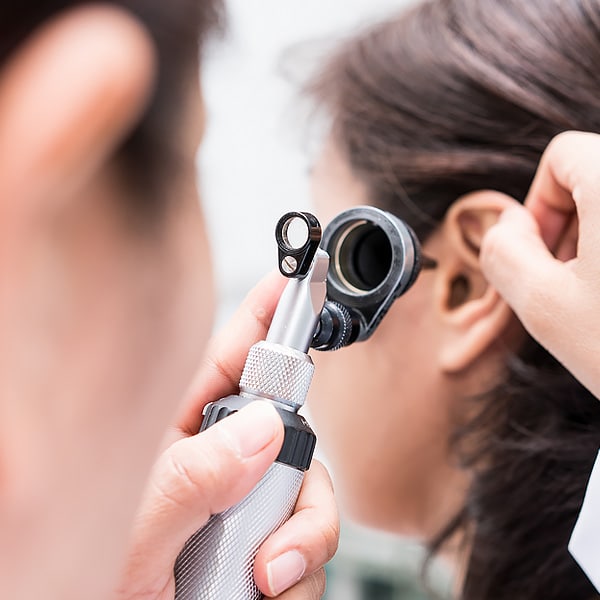Ear infections occur when bacteria or viruses infect the middle ear (the area on the inside of the eardrum) or ear canal. Otitis media is the term used when there is a buildup of fluid and inflammation in the middle ear, the space behind the eardrum. When the ear canal is infected, it is called otitis externa. Although both adults and children get ear infections, children are much more likely to get recurrent infections and complications.
Middle ear infections are frequently associated with upper respiratory infections and allergic rhinitis and can follow a simple cold. Ear pain and even decreased hearing are common symptoms of middle ear infections. Most ear infections are caused by viruses that do not respond to antibiotics and often require supportive therapy with OTC pain relievers, rest, and fluids. Those that are caused by bacteria can be treated by antibiotics and usually resolve within seven to ten days. Frequent ear infections may require ear tubes.
Outer ear infections cause swelling and pain in the ear canal. The ear canal is the tunnel part of the ear that goes from the outside of the head to the eardrum. Otitis externa is also frequently known as “swimmer’s ear.” These infections don’t only occur in those who swim, but the bacteria that commonly cause the infections thrive when water stays in the ear canal for too long. The symptoms of otitis externa often include pain when the ear is pulled or moved, itching, fluid draining from the ear, and decreased hearing. Medicated ear drops are the mainstay of treatment. Medicated drops allow the medication to topically penetrate the infected skin and clear up the infection and/or relieve inflammation and pain.
Is there anything that can be done to prevent ear infections?
Yes, there is. First, do what you can to prevent getting infected with common colds or other illnesses. You and your children can do so by washing your hands frequently and thoroughly. It’s also a good idea not to share eating and drinking utensils even if the other person doesn’t appear ill. Stay home from school or work if you are ill and cover your mouth when you sneeze or cough. Secondhand smoke has also been proven to increase the risk of ear infections, so stay away from tobacco smoke as much as possible. Get plenty of rest and stay well hydrated. Vaccines also prevent ear infections so be sure to keep your children immunized according to the recommended schedule. Flu shots and pneumococcal vaccines may help prevent ear infections.
